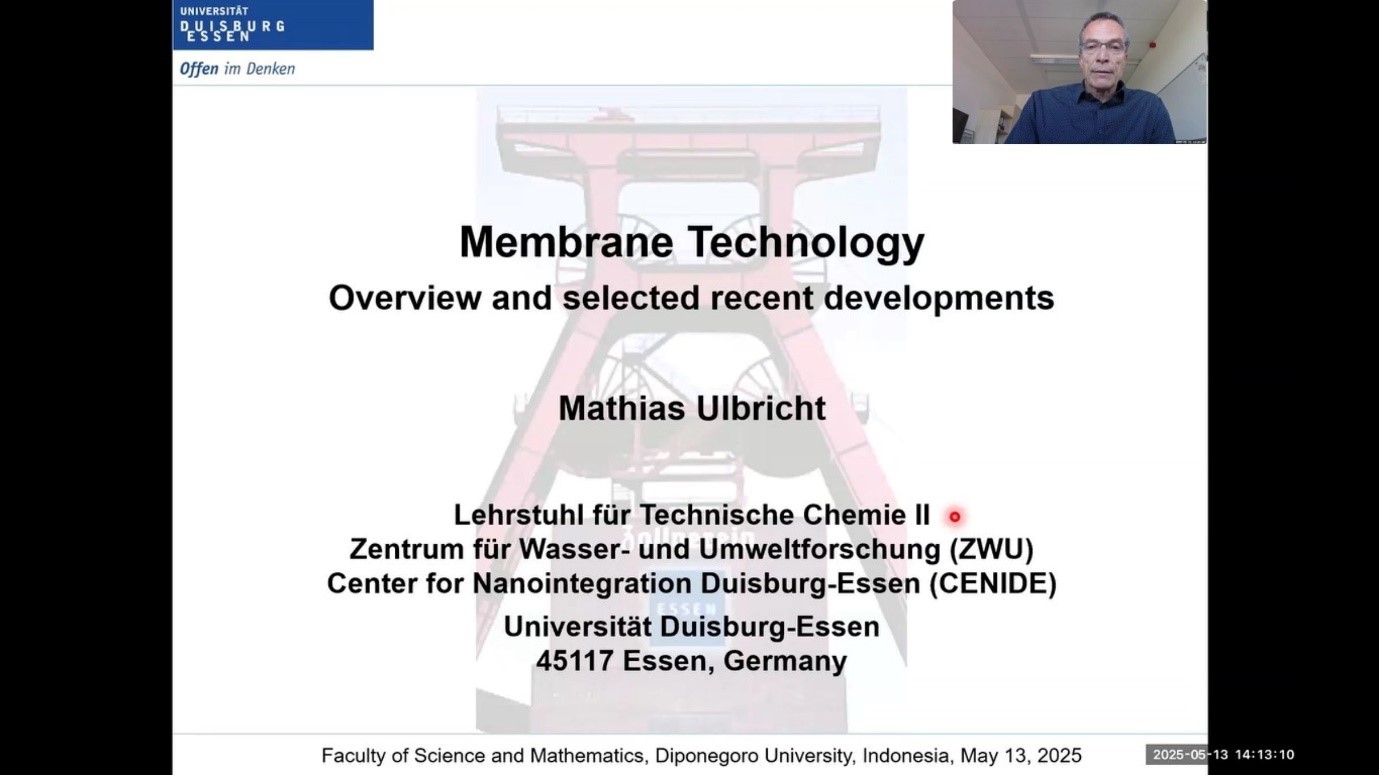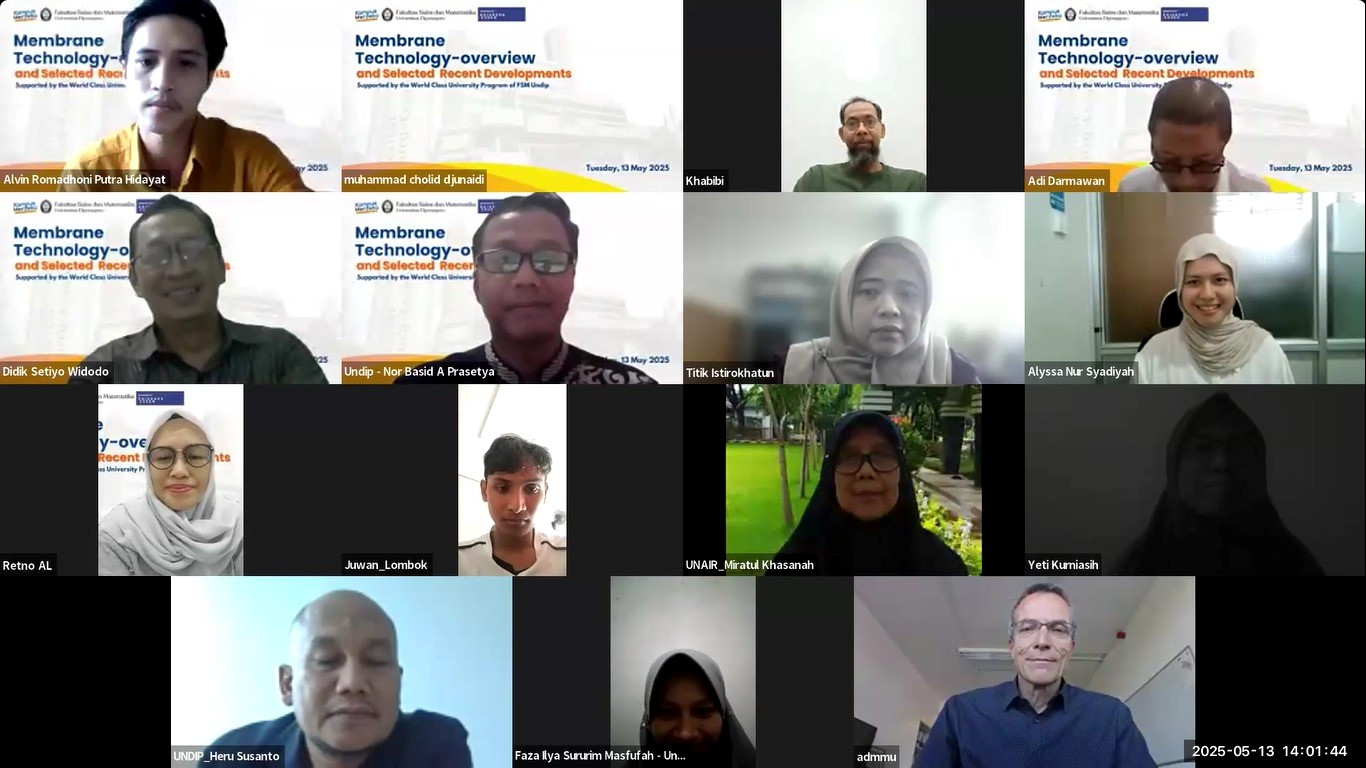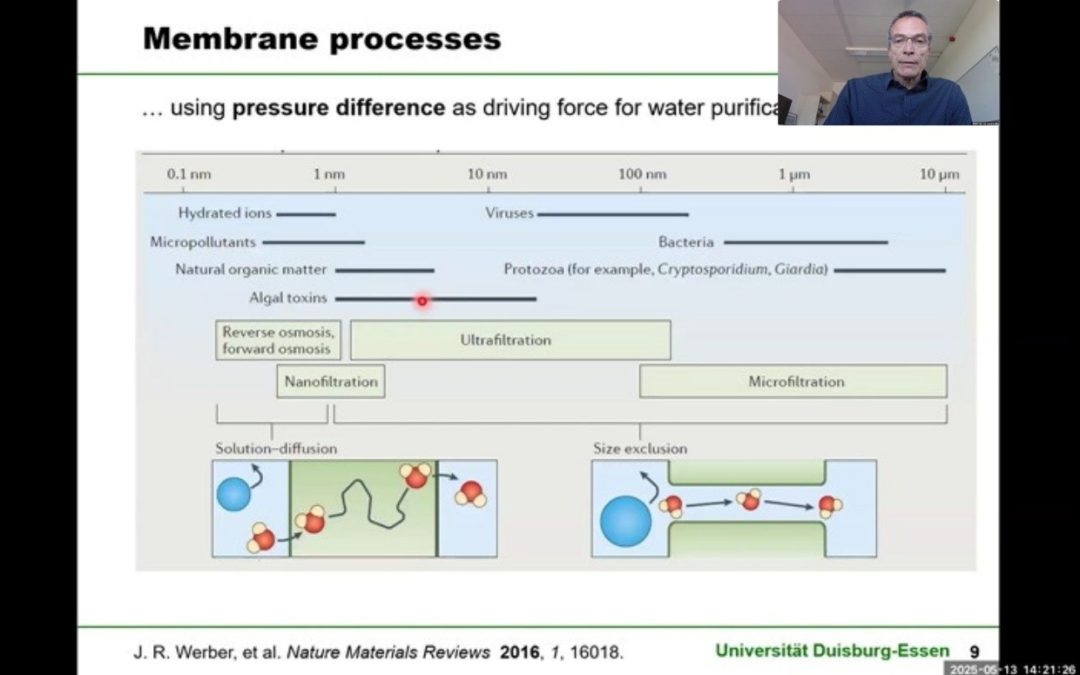The Department of Chemistry and the Doctoral Program in Science and Mathematics at the Faculty of Science and Mathematics, Diponegoro University (FSM UNDIP), successfully held an international webinar titled “Membrane Technology – Overview and Selected Recent Development”. The event featured world-renowned expert Prof. Mathias Ulbricht, Ph.D. from the University of Duisburg-Essen, Germany. Conducted via Zoom, the webinar was moderated by Dr. Nor Basid Adiwibawa Prasetya, M.Sc., and attended by approximately 160 participants from various academic and research institutions.
The event opened with welcoming remarks by Prof. Adi Darmawan, S.Si., M.Si., Ph.D., Head of the Department of Chemistry at FSM UNDIP. He highlighted membrane technology as a highly relevant and rapidly evolving field. Emphasizing the importance of ongoing research, he noted that the field spans a wide range of topics—from water purification and clean energy to medical applications. Prof. Adi also expressed his appreciation for Prof. Ulbricht’s presence, acknowledging his outstanding contributions to membrane science, with more than 400 scientific publications to his name.

In his presentation, Prof. Ulbricht outlined the fundamental principles of membrane technology, describing membranes as selective barriers that enable the separation of components in both liquid and gas systems. He elaborated on various types of membranes, including porous, dense, and charged membranes, and discussed commonly used separation processes such as osmosis, reverse osmosis, and pressure-driven filtration. Beyond the fundamentals, Prof. Ulbricht presented the latest developments in membrane fabrication techniques such as phase inversion and interfacial polymerization, as well as the design of composite membranes with advanced features like antifouling properties and catalytic functionality. The wide-ranging applications of membrane technology covered in the talk included seawater desalination, wastewater treatment, the food and pharmaceutical industries, energy storage, and medical devices such as dialysis membranes.

The discussion session reflected a high level of engagement, with participants raising in-depth technical questions regarding membrane design and application. Topics included material compatibility in composite membranes, the relationship between pore structure and separation performance, and challenges in applying membrane technologies in medical and energy contexts. Prof. Ulbricht addressed these inquiries thoroughly, drawing from his extensive experience in both academic research and industrial collaboration.
This webinar demonstrates FSM UNDIP’s continued commitment to advancing knowledge and fostering international academic collaboration in science and technology—particularly in developing sustainable solutions through membrane technology.
[Public Relations/FSM/Meilia]

